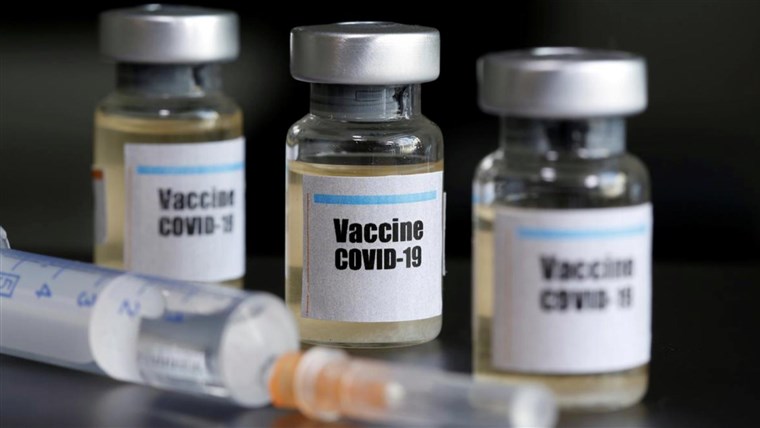The new vaccine, real hope or terrifying misfortune?
January 8, 2021
The COVID-19 virus has spread throughout the world, and for a while, there seemed to be no cure or vaccine for coronavirus. However, as many scientific groups and organizations – funded by governments all over the world – continued to study and investigate this virus, a solution emerged. A new vaccine has come to light, mostly, in Western countries of the world, and the people are ready to take it. Different opinions on the order and on whom should receive this vaccine have begun to arise amongst the people as they fear the vaccine’s side effects.
Students at Miami Senior High hold different perspectives about the new vaccine and whether they’d take it. Senior Ashley Martínez said that she wouldn’t take it “because I’m young and haven’t been sick since the pandemic started. There are people who aren’t as fortunate; therefore, I believe instead of me, they should get it.”
However, senior Rafael Rodriguez said, “I would take it because even if I don’t know what comes inside of it or if it has sides effects the people who worked on it are sure it would help the population and it would protect us from the disease.”
According to the New York Times, in the article titled “Hospitals Discover a Surprise in Their Vaccine Deliveries: Extra Doses”, published in December of 2020 by Katie Thomas, “Britain gave emergency authorization […] to Pfizer’s coronavirus vaccine, leaping ahead of the United States to become the first Western country to allow mass inoculations against a disease that has killed more than 1.4 million people worldwide.” The Pfizer’s vaccine has been proved to have a 95% success rate on the population of Germany, and it is expected to continue to work outside of clinical trials.
In the United States of America, after months of preparation and debate on whom should receive this vaccine first – when it is safe to use – the Center for Disease Control (C.D.C.) has decided to begin with medical health staff members and elderly citizens.
After being vaccinated, many claim to be experiencing some side effects of the vaccine. According to the article written by Amy Harmon on December 11th, 2020 on The New York Times, Dr. Wilson, one of the people who’ve already been injected with the vaccine, suffered from strong headaches and nausea which impeded her from working that day.
Harmon added, “Pfizer, the company that makes the one she received, reported that some 13 percent of recipients aged 18 to 55 had a bad headache after the first dose. About 16 percent of those who received the other vaccine, made by Moderna, in a late-stage trial had a reaction strong enough to prevent them from going about their daily routine.” Harmon states that these side effects were not uncommon among vaccinated patients.
Both the Pfizer-Biotech and Moderna vaccines depend on genetic technology that “has never before yielded a vaccine that won regulatory approval. They are authorized for emergency use only. Studies of their safety, including the cases of an Alaska health care worker and a Boston doctor who experienced severe allergic reactions after receiving their shots, are still underway.”
Because of these, and other cases, many people prefer not to take the vaccine just yet. Dr. Erick M. Hueck, Miami High’s Science Department Chairperson and Advanced Academics Chairperson, said, “I do look forward to the vaccine, but I will not be one of the first ones to try it out due to the lack of time it has taken to make and run trials with it.”
Ms. Rivero, Physical Science teacher and the sponsor of the Health Information Project at Miami High, agreed that even though she wanted to take the vaccine, the first one to come out could be dangerous because it had been prepared in a short period of time and was not trustworthy in her opinion.
Junior Julian Del Campo said, “I wouldn’t take it because for years, when you look at the history of vaccines, they’ve made vaccines that weren’t effective and even were shown to worsen the sickness because a lot of times, even though there have been negative effects, the FDA still states you should take it. It takes a long time to make a vaccine that is actually effective and from what we’ve seen, this new one for Covid has either no effect or leaves negative ones such as feeling weak and more open to Covid. I’d rather just stay safe at home, only go out with a couple people, and keep my distance if there’s a lot of them, and just wait till we get a vaccine that the FDA actually states is guaranteed to fight against the virus.
However, junior Aurora Vieyra is ready to get vaccinated right now. “I trust the scientists that worked with it, and I believe that it will work and, honestly, Corona isn’t going anywhere so might as well take it so I won’t have risks.”
According to the CDC, the instructions to take the Moderna vaccine are the following: 2-dose series separated by 28 days. A series started with COVID-19 vaccine (Moderna) should be completed with this product. Do not mix with a diluent. Discard vial when there is not enough vaccine to obtain a complete dose. Do not combine residual vaccine from multiple vials to obtain a dose. The vaccine is to be administered in “Intramuscular (IM) injection in the deltoid muscle.”
Research suggests that males might want to get the vaccine quicker than females. Alisha Haridasani Gupta wrote in April of 2020 in her New York Times article “Does Covid-19 Hit Women and Men Differently? U.S. Isn’t Keeping Track” how there were more casualties coming from the male population than of the female. She said, “[…] based on data from China, Italy and South Korea, we also know that men seem to have higher fatality rates.” Ms. Gupta added that even though the U.S. had kept a record – so far – of all infected, it lacked a sex breakdown of the infected. The author added, “The latest update on cases and deaths in the U.S. from the Centers for Disease Control and Prevention contained no mention of male and female patients.”
Gupta included data from other countries. She said, “A recent research paper from Huazhong University of Science and Technology in Wuhan, China, studied the plasma of 331 confirmed coronavirus patients and found that in the most severe cases, women had a higher level of antibodies than men. Though the paper hasn’t been peer-reviewed, it provides yet another reason to capture sex data.”
Glossary for key terms in the story
New York Times: American mass media company which publishes its namesake newspaper, The New York Times. Arthur Ochs Sulzberger Jr. has served as chairman since 1997. It is headquartered in Manhattan, New York City.
Pfizer’s coronavirus vaccine: BioNTech, Fosun Pharma, Pfizer vaccine is a COVID-19 vaccine authorized by FDA and recommended by the CDC for use in the US for a limited population.
Moderna: American biotechnology company based in Cambridge, Massachusetts. It focuses on drug discovery, drug development, and vaccine technologies based exclusively on messenger RNA. Moderna’s technology platform inserts synthetic nucleoside-modified mRNA into human cells.
Intramuscular (IM) injection in the deltoid muscle: technique used to deliver a medication deep into the muscles. This allows the medication to be absorbed into the bloodstream quickly. You may have received an intramuscular injection at a doctor’s office the last time you got a vaccine, like the flu shot.
FDA: Food and Drug Administration.






Ed • Jan 12, 2021 at 3:27 pm
An interesting read about COVID-19 vaccines, really highlights the double bladed aspect of the cure.
Adianez • Jan 11, 2021 at 10:18 pm
Amazing article, finally someone is showing the dark side of this vaccine and showing what the young generation think about it. In my opinion I wouldn’t take that vaccine just yet because it came out too soon.
Daniela • Jan 8, 2021 at 4:00 pm
Me parece muy interesante. Las informaciones están muy claras. Definitivamente aprendí y me informé sobre el tema